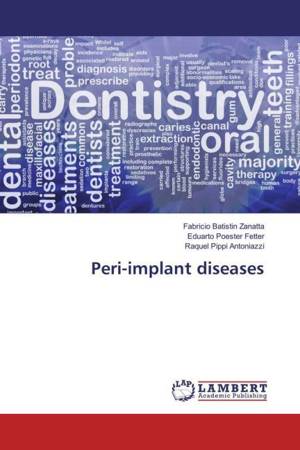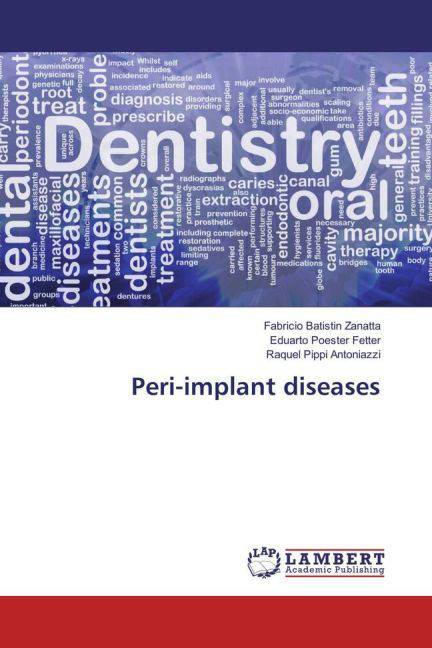
- Afhalen na 1 uur in een winkel met voorraad
- Gratis thuislevering in België vanaf € 30
- Ruim aanbod met 7 miljoen producten
- Afhalen na 1 uur in een winkel met voorraad
- Gratis thuislevering in België vanaf € 30
- Ruim aanbod met 7 miljoen producten
Zoeken
Peri-implant diseases
Fabricio Batistin Zanatta, Eduarto Poester Fetter, Raquel Pippi Antoniazzi
Paperback | Engels
€ 21,95
+ 43 punten
Omschrijving
Oral rehabilitation using implant-supported prostheses was a major breakthrough in dentistry. Dental implants (DI) survival rates exceed 91.5% in healthy patients. However, it may present complications of biological, mechanical and aesthetic nature. Biological failures occur due to inability of host tissues either to establish osseointegration (primary or early failures) or to maintain it (secondary or late failures). Late biological failures occur after osseointegration due off marginal infection (peri-implantitis), biomechanical overload or a combination of both. Considering the popularity of dental implants and the increasing incidence of peri-implant disease, it is pertinent to review and discuss the different aspects of peri-implant infections. Adopting a "questions and answers" style, the aim of this book is to address the subject of peri-implant diseases based on relevant evidences including data on epidemiology, etiopathogenesis and therapeutic considerations. This choice of format enables dental clinic for a synthetic approach to a relatively vast subject, making it accessible to many readers, who may pick and choose their topics of interest.
Specificaties
Betrokkenen
- Auteur(s):
- Uitgeverij:
Inhoud
- Aantal bladzijden:
- 68
- Taal:
- Engels
Eigenschappen
- Productcode (EAN):
- 9783659914621
- Uitvoering:
- Paperback
- Afmetingen:
- 150 mm x 220 mm

Alleen bij Standaard Boekhandel
+ 43 punten op je klantenkaart van Standaard Boekhandel
Beoordelingen
We publiceren alleen reviews die voldoen aan de voorwaarden voor reviews. Bekijk onze voorwaarden voor reviews.











